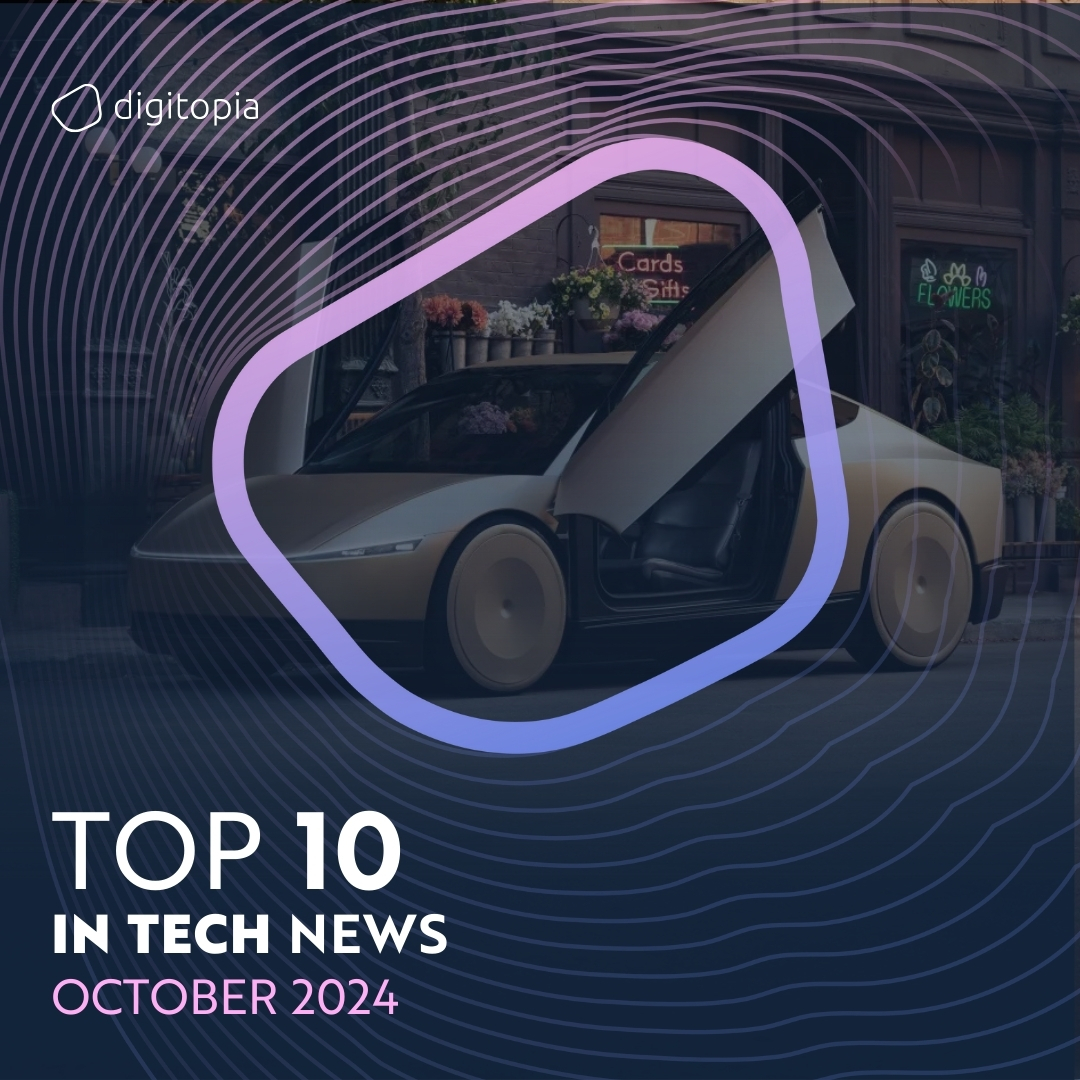
1- Elon Musk unveils his ‘Cybercab’ robotaxi
Elon Musk unveiled his vision for an “age of abundance” at a Tesla event, highlighting futuristic self-driving robotaxis, a Robovan, and the Cybercab, which lacks a steering wheel or pedals. Despite his optimism, including claims that full autonomy could arrive in California and Texas by next year, Tesla’s track record of delayed timelines and unfulfilled promises leaves investors skeptical. The event showcased sleek, sci-fi-inspired designs, but while competitors like Google’s Waymo have made significant progress, Tesla has yet to deliver fully autonomous vehicles. Musk acknowledged his tendency toward overly optimistic predictions, admitting challenges remain before achieving true self-driving technology.
Source: CNN
2- Google joins Big Tech’s move into nuclear power, and other top energy stories
Recent energy sector highlights include Google’s groundbreaking deal to purchase power from small modular nuclear reactors to meet AI-driven electricity demand, marking Big Tech’s growing interest in nuclear energy. The International Energy Agency (IEA) predicts a peak in fossil fuel demand by the decade’s end, followed by a shift to an “age of electricity” driven by clean energy investments. Meanwhile, China leads the global clean energy rollout, aiming to hold half of the world’s renewables by 2030. Other updates include calls for more infrastructure investment to support renewable energy, with global developments in solar power, energy storage, and nuclear energy continuing to shape the energy transition.
Source: WEF
3- Nvidia stock rises to new record, exceeding June high as AI trade is rekindled
Nvidia shares hit a new record on Thursday, rising over 3% to an intraday high of $140.89 before closing at $136.93, fueled by renewed investor interest in the AI sector. This new high surpassed the previous record set in June, as Nvidia’s stock has surged 180% year-to-date. The boost follows strong third-quarter earnings from Taiwan Semiconductor Manufacturing Company, Nvidia’s chip producer, and growing demand for Nvidia’s GPUs from major tech companies like Microsoft, Meta, and Google, which are using them for AI projects. Nvidia’s upcoming AI GPU, Blackwell, is expected to drive significant revenue in the fourth quarter.
Source: CNBC
4- This Company’s AI Agents Won Contests To Secure Big Customers. Now It’s Raised $65 Million
Decagon, co-founded by Jesse Zhang and Ashwin Sreenivas, raised $65 million in Series B funding, bringing its valuation to $650 million. The company’s AI-powered customer service agents, used by companies like Notion and Duolingo, consistently outperform competitors in bake-off tests. Built on large language models and enterprise data, Decagon’s software provides transparency and control over chatbot responses. The new funding will help expand the team, target new customers, and add a voice feature as demand for AI agents grows.
Source: Forbes
5- When Cyber Security Breaches Are Inevitable, It’s Time To Call For A New Approach
At the TED Conference, the Radical Innovators foundation gathered leaders to discuss how AI and quantum computing can elevate human experiences, while also addressing cybersecurity risks. T-Mobile’s CISO led a session on how emerging technologies are supercharging cyberattacks, with discussions on the inevitability of breaches. Experts emphasized the need for cyber resilience, a strategy focused on sustaining business operations during attacks. Key elements include planning, proactive detection, and partnerships, with firms like Rubrik leading advancements. The shift towards cyber resilience is also attracting venture capital interest.
Source: Forbes
6- GE HealthCare announces time-saving AI tool for doctors who treat cancer
GE HealthCare has introduced CareIntellect for Oncology, an AI-powered tool designed to streamline oncologists’ workflows by summarizing patient histories, monitoring disease progression, and identifying relevant clinical trials, saving doctors significant time. Set to launch in 2025 for prostate and breast cancers, this cloud-based tool is expected to generate recurring revenue. GE HealthCare is also developing five additional AI tools, including Health Companion, a system where AI agents specializing in different medical fields collaborate to assist doctors with quicker, multidisciplinary insights, aiming to improve patient care and reduce the workload on clinicians.
Source: CNBC
7- Claude AI tool can now carry out jobs such as filling forms and booking trips, says creator
Anthropic, an AI startup backed by Amazon and Google, has developed an AI agent called Claude that can perform computer tasks such as filling out forms, planning trips, and building websites. While currently experimental and prone to errors, the tool is being made available to developers for feedback and improvement. This announcement follows similar advancements by Microsoft, which launched a product allowing companies to build autonomous AI agents for tasks like scheduling and handling client inquiries.
Source: The Guardian
8- Microsoft introduces ‘AI employees’ that can handle client queries
Microsoft is launching AI-powered autonomous agents, or “virtual employees,” capable of handling tasks like client queries and sales lead identification. Customers can build their own agents or use 10 pre-built bots for roles such as supply chain management and customer service. Early adopters include McKinsey and Clifford Chance. Microsoft CEO Satya Nadella emphasized that these tools boost productivity by reducing repetitive tasks, similar to the impact of personal computers decades ago. While Microsoft promotes AI agents as enablers, there are concerns about their long-term ability to match human capabilities and generate significant revenue.
Source: The Guardian
9- Google to buy power for AI needs from small modular nuclear reactor company Kairos
Google has signed the world’s first corporate agreement to purchase power from multiple small modular nuclear reactors to meet its growing AI energy demands. The deal with Kairos Power plans to bring the first reactor online by 2030, with additional reactors by 2035. Google aims to acquire 500 megawatts of power from six to seven reactors, which is smaller than current nuclear plants. Financial details and reactor locations were not disclosed, but this move supports Google’s commitment to carbon-free energy.
Source: Reuters

